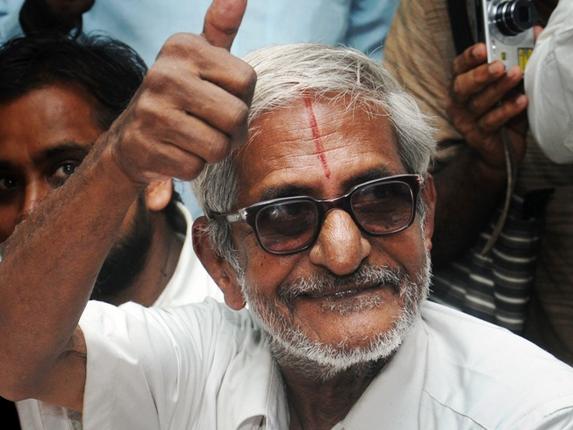Several issues affecting society at large has been effectively addressed through public interest litigations filed before the Madras High Court and the Supreme Court by individual activists. At the same time, frivolous petitions have added to the burden of judiciary.
In the nineties it was common to spot reckless fish cart riders causing accidents in the busy thoroughfares of Chennai. These riders, mostly fish vendors and load deliverers, used to zoom past on tricycles that were illegally fitted with mechanised engines.

When the police and transport department officials failed to rein them in, a frail man, ‘Traffic’ Ramaswamy, decided to take up the task of checkmating the violators. A former weaving master in the now defunct Binny Mills, Ramaswamy filed a public interest litigation (PIL) petition in the Madras High Court questioning how an illegally modified motor vehicle could be allowed to ply on the streets. The court promptly banned the mechanised fish carts in 2002.
This was just one of the successful legal battles fought by Ramaswamy, now an octogenarian. He has thus far filed over 500 PILs, some of them of controversial ones, braving threats from vested interest elements. Though he does not have a legal background and encounters problems in communicating in English, Ramaswamy appears as party in person to argue his cases.
Judges and many lawyers at the Madras High Court recognise him as he was the one who obtained a stay against constructing a flyover on the NSC Bose Road near the court in 1998. He was also instrumental in getting a one-way traffic system reversed on the same road.
Another man, who has successfully litigated on matters of public interest, is social activist A. Narayanan. Founder of CHANGEindia, a centre for research and advocacy on social and governance issues, he moved a PIL to get a State-wise ban imposed on entry of human beings into sewerage manholes and septic tanks. His litigation eventually led to the enactment of the Prohibition of Employment as Manual Scavengers and their Rehabilitation Act, 2013 in India.
“PIL can only be a part of an activist’s larger engagement for advocating change. There should be lot of research before filing a PIL petition and it requires constant follow up to ensure that a favourable order is implemented,” points out Narayanan.
Asked how effective a remedy is the PIL, he says in a country bogged by poor governance, lack of accountability, deep rooted corruption, unresponsive and undemocratic, power-centric administration, lack of engagement with civil society and more importantly failure of regulatory institutions, people are being driven to the courts for seeking relief.
“When more and more people approach the court with genuine public interest, definitely we can expect a positive change throughout the country,” says RTI activist Jawaharlal Shanmugam. He had successfully fought a PIL to secure compensation to 16 patients who contracted Hepatitis-C virus while undergoing treatment for kidney ailment at the State-run Stanley Medical College Hospital in Chennai earlier this year.
source: http://www.thehindu.com / The Hindu / Home> National> Tamil Nadu / by Suresh Kumar / Chennai – November 16th, 2015